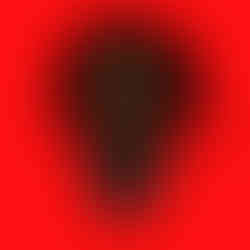Student Interview: J.C Innocent on Afrofuturism and the age of digital art
- Sm[ART] Commons
![Writer: Sm[ART] Commons](https://static.wixstatic.com/media/aeb1f8_e9baee42902040cfa974efe471b66c57%7Emv2.jpg/v1/fill/w_32,h_32,al_c,q_80,enc_avif,quality_auto/aeb1f8_e9baee42902040cfa974efe471b66c57%7Emv2.jpg)
- Mar 28, 2025
- 5 min read
This week we sat down with J.C Innocent, a student artist here at MCLA with a special interest in how to reshape the Black narrative through the arts.

Enaya: Hi, thank you so much for sitting down with me tonight. I'm excited to interview you for the Smart Comments Blog and talk to you about your projects for the semester. Can you introduce your name, major year and where you're from?
J.C: Hello, my name is JC. Innocent, I'm double majoring in art and arts management, and I'm coming from Boston, Massachusetts, originally from Haiti.
E: Nice. So, what are you working on for your senior art project?
J: Well, my senior art projects is a culmination of a lot of things that I've been working on since I came here (MCLA). It's tackling heavy topics such as generational trauma and representation of people of color. Trying to reposition people of color in places of power.
E: I love to see it. I know in our personal conversations about your work we've talked about the term Afrofuturism. How do you personally interpret that term and how does it shape the digital art that you create?
J: Afrofuturism has lots to do with my digital art, because in high school, I originally read a book called Afrofuturism and it shaped my perception of thinking. It opened my perspective to be more hopeful; yes, black people do have a future, because at one point I had a very doomed outlook on the civil rights movement and just any kind of movement that people of color had tried to make in order to have a better life for themselves. So Afrofuturism for me is generally just hope. Whatever kind of lifestyle a person of color creates, it has the same or general quality that embraces their skin, embraces their music, embraces their food, wherever they're from, and it puts that in a light that's positive. For me the term is a hopeful look on the future that all cultures are included.
E: So, do you feel like that term is like ever-evolving?
J: It is for sure, “ever-evolving” is a great way to frame it. The first person who had written about Afrofuturism grew up around the 1970s, and she, like I, envisioned the future to be a place where our culture is not just celebrated but integrated into society to better it and uplift the people.
E: How do you incorporate elements of black heritage and history into your work, especially in the medium like a digital art?
J: I incorporate facets of black heritage and history based on a lot of the media that I saw in movies growing up actually. Like, specific things like how their hair was done, how their armor looked, their general aesthetic. And, I moved those ideas into the characters featured in some of my current works.
E: Being inspired by films and things of that nature, do you see your work ever becoming something more in the round, more live action?
J: Well, a lot of my interests are in production in general. I want to be able to make a production studio that creates animation and live action, in whatever medium is necessary to tell the tale. Creating projects like children's books is a brilliant way to be able to inspire a child to create like something in that vein. You know what I mean?
E: Do you see your art medium as a way to preserve or reinterpret black heritage in the modern age? If so, what is technology's place in all of this?
J: Ooh, that is a really good question. Preservation has always been a huge thing for me. I always wanted to figure out a way to save my artworks and store them. I always think big and then I’m left with, “where am I gonna put this”? But in terms of preservation of history, that's kind of why I want to make children's books and why I want to make movies, because these mediums can shift cultures and mindsets. The matrix was able to do that in the early 2000s. And books like 1984 was able to do that, like way before, even like I was born. And so to be able to create something on that level, that creates a cultural shift in the minds of not only children, but then adults, too, is important to me. That's also why I do digital art; the medium is just not, accessible but eternal in many ways.
E: How important is the concept of high fidelity in your art, both in terms of technical quality and in terms of fidelity to the black cultural narrative?
J: High fidelity for me has always been a quality bar, across all mediums. H fidelity art is visually impactful. The way I break it down is you can tell the difference between a four-star meal and a five star meal. Sometimes that difference can be that it just tastes better. You can't exactly put your finger on what is it but you can sense the level of quality that reflects the artists intent and dedicated in the final product.
E: As technology continues to evolve, do you feel that digital art can create a platform for more diverse voices in the future?
J: In terms of a platform, I believe those spaces already exist; and those platforms have led to amazing things happening, take me for example. Or say, Travis Scott who was able to have a concert that celebrated hundreds of millions of young people and encourage them to interact with artistic content. But conversely, in many ways I see that somehow technology is getting more immersive and the real world is getting less so. But that's a whole other topic for another day.
E: Yes, and I would love to chat more about that concept with you in a separate interview because it’s a problem many young people are grappling with, and I think enhancing their relationship to the arts is one way to combat it. But, this brings us to our final question: How do you see the relationship between technology and black representation evolving in our world?
J: Okay. This is kind of the question that I have been grappling with in my arts and trying to figure out how to create a visual depiction for that. One of the pieces that I'm working currently is about generational beauty. It has a grandmother, a mother and a daughter. The grandmother being born in a time before technology, the mother being uh born in a time where technology is growing and becoming something while the daughter is born into an age with technology is everywhere and easily available. And I think that for each generation and for generations to come, it'll either be something that is synonymous to the point where it's in the foreground, background, and afterthought. Like, there will be an over-reliance on technology to push that message forward. And of course, I can't read the future, so I'm not sure where it'll go, but the future that I'm aiming for is to be able to use technology as a tool. To be able to convey that message, rather than depending on it to actually create our realities, then give that message out... Does that make sense?
Enaya: It does. And, you had 'lots of great answers! Thank you so much for sitting down with me today.
J.C: Of course!

To see more of J.C Innocent's artwork
and creative practice, visit: Insomnia Artworks











